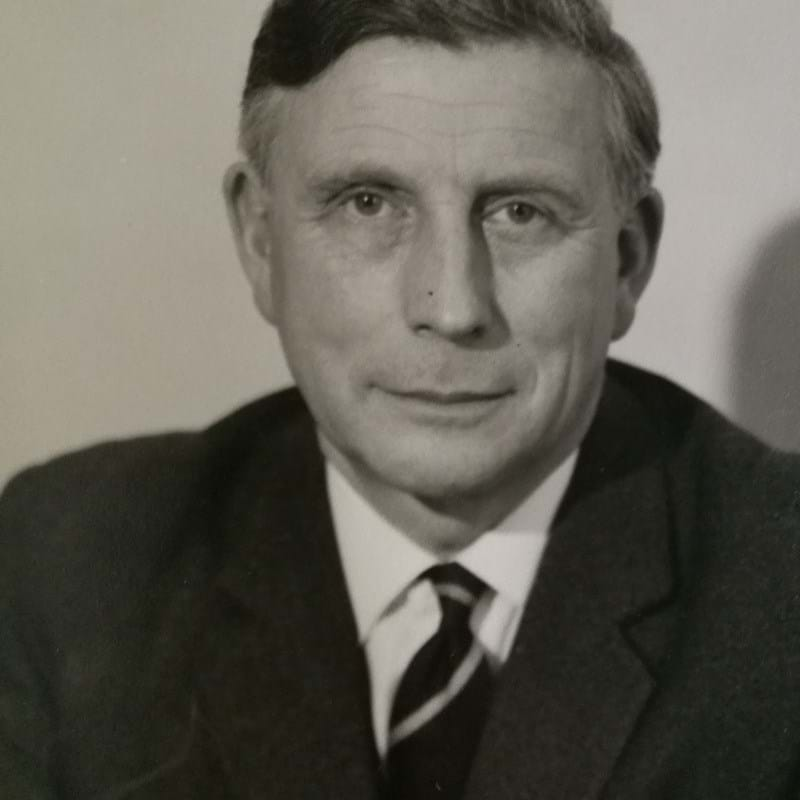
George Anthony Dummett: 1968–1969
George Anthony ('Tony') Dummett, the son of a silk merchant, was born in London in October 1907. His boyhood ambition was to become a scientist and after four years at Rugby he obtained a National Coal Owners' Scholarship tenable at Birmingham University. The course provided did not suit the abundance of mental energy possessed by Tony Dummett and after one year at Birmingham he decided to seek his scientific training elsewhere.
He promptly secured himself a place at Pembroke College, Cambridge, where he spent the next six years. During this time he took the National Science Tripos Part I and Part II as well as undertaking research work in physical chemistry. He obtained his BA degree in 1929 and his MA degree in 1934.
In 1934 he moved to industry - as a Research Assistant at the Thorncliffe Coal Distillation Company Ltd, the Coke Oven subsidiary of Newton Chambers Ltd, which later became part of the National Coal Board. It was there that he was introduced to the concept of chemical engineering as his occupation brought him into contact with many of the operational problems associated with the variety of unit processes operated at Thorncliffe.
In 1935 he joined the APV Company Ltd (then known as The Aluminium Plant and Vessel Co Ltd, situated at Wandsworth) as a Technical Research Assistant. To this company technical innovation was its birth-mark and Tony Dummett was able to satisfy his inquiring mind by first assisting and in later years directing their research and development programme.
Early in his career with APV, the opportunity to develop a new distillation contacting device presented itself and after much painstaking pilot plant work by Tony Dummett, the APV 'West' Distillation Tray appeared on the market. Unfortunately the outbreak of the war and subsequent restrictions prevented the appearance of what surely would have been a classic series of technical papers on this work.
During the war he devoted much of his time to the construction of distillation units and the development of new distillation processes. Thus the country saw the establishment of numerous continuous units for the production of acetone, benzene, toluene, and tar acids, all to meet the specifications demanded by the country's war effort.
By 1943 he had been appointed Laboratory Manager. Shortly after this a new chemical engineer joined the APV Chemical Engineering Department - 'Ned' Warner (now Sir Frederick Warner) - and so for the next four years APV had two future Presidents of the Institution working as colleagues.
Following an appointment in 1948 as Manager of the Chemical Engineering Department, in 1950 Tony Dummett became Scientific Manager of APV, their Research Director in 1956, and Deputy Managing Director in 1966. His period of office as Research Director was marked by a number of interesting technological developments including a double-entrainer process for the production of high quality benzene, toluene, and xylene from a petroleum feedstock and the successful introduction of the APV continuous brewing process and other applications of chemical engineering in the food industries.
He became an Associate Member of the Institution in 1940, and a Member in 1958 and, in addition to being Vice President in 1967-1968, he served on the Institution's Research, Finance & General Purposes and Publication Committees. Elsewhere he also served as Chairman of the Research Committee of the Federation (later Confederation) of British Industries, a Member of the Council and Executive Committee of the BCPMA and Chairman of the Organising Committee for the 1969 International Symposium on Distillation.
Return to list